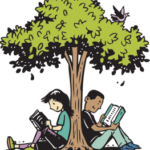Unstoppable, joyous, exhausted
Bob Lawson
Bob speaking to the Uptown Goodfellows before a march on the police station against police brutality
b. 1944 in Midland, Texas
In 1966, Bob went to Chicago to work with JOIN (originally an SDS community organizing project building a multi-racial movement of the poor) and organized a group called Uptown Goodfellows and later they started an organization in Chicago called Rising Up Angry organizing in working class white communities.
I met Bob thirty years later when we were both working for the AFL-CIO Organizing Department. He moved from there to organizing public sector workers in Colorado and California. Another twenty years finds him still organizing, this time to defend attacks on public education. He lives in the Bay area with his wife, artist Jane Norling, and we reached him on his way to a Fight for $15 rally.
______________________________
What 3 words describe your leadership style?
Collaborative, inquisitive, flexible
What early experience helped shape the leader you became?
Playing competitive sports. I learned that leadership comes from working hard, from doing it and not talking about it. I went to college on a football and academic scholarship. It was about strategy, teamwork, adapting in the moment to changing circumstances, and playing through pain. I was really small, but quick and smart. [pause] Honestly, I was crazy.
What was your first experience of injustice?
Seeing on television that they were integrating Central High in Little Rock and watching crowds of white people throwing rocks at the students. I had no idea people could be that hateful. My parents explained that it was racism. I remember wondering why the National Guard didn’t just shoot them.
To what extent are you the same or different than your parents?
They grew up during the Depression and were shaped by that reality, whereas I had a very different experience. I did learn a lot from them, like taking unorthodox paths and following your passion, and they set me on the path of thinking that racism is wrong. On the other hand, my father eventually worked for the Department of Corrections in California and when the 60s came and I got radical, well, I couldn’t tell him what I was doing. They supported me in a general sense, but they didn’t believe the Black Panthers were great.
When did you feel the most a part of a movement?
There were several times that I really felt part of something huge. The first time was in 1965 when I hopped on a train from Sacramento to D.C. to lobby for the Mississippi Freedom Democratic Party. People from all over the country were there - it was after the Convention when they weren’t seated - and there was singing and people talking about going back to the struggle. For that whole period of time afterwards, when I was organizing in communities and participating in huge demonstrations, we just called it ‘the movement’.
The next time was in the mid-70s when I was working for United Farmworkers organizing lettuce workers in California. Collective bargaining had just passed and we were signing up people and having union elections in the fields. People would get fired for being with the union and we just took over the machinery that cut the lettuce and they couldn’t do anything about it. People took the UFW flags and were hanging them on the buses.
Then there was the Harold Washington campaign. When he ran for mayor of Chicago in 1983 I was the North and Northwest precinct coordinator. It was a huge mass movement. I remember the feeling of joy when he won. People wore their buttons for a year after. We would see each other and smile. I was at AFSCME then and we built on that momentum and organized thousands of city and county workers into the union for the first time.
I am so lucky to have been part of these moments in history where there was unbelievable energy, unbelievable connectivity between all kinds of people. You are willing to work your butt off. You feel unstoppable, joyous and exhausted.
What is the best advice you ever got?
‘If you are serious about making change, you have to go to the people who are going to benefit the most because they will never sell out.’ That came originally from Ella Baker, my biggest hero, but I got it from a SNCC organizer in 1965. He told me to organize poor white people, because they will be the best allies to poor black people and I as a white person could do that.
What is the last thing that made you really angry?
Today? Trump’s budget. Increasing the military budget when we have the biggest military in the world. Hurting the most vulnerable people. Tax breaks to the wealthiest. I could be mad at almost every single line. They know how to use state power when they get it. They roll even when it isn’t popular.
Bob Lawson in 2015 with leaders from AFSCME Council 28 in Washington State
What sustains you?
It’s selfish, but I get so much out of being part of a movement for social change. I meet all kinds of people I would never interact with and feel this bond with them. A life of constantly challenging yourself, and knowing real change can happen. Meeting the people who feel fulfilled out of this work and keep doing it over and over again. And besides, what the hell else is there to do?
Please share any stories you have about Bob below.
Comments
Leave a Reply
